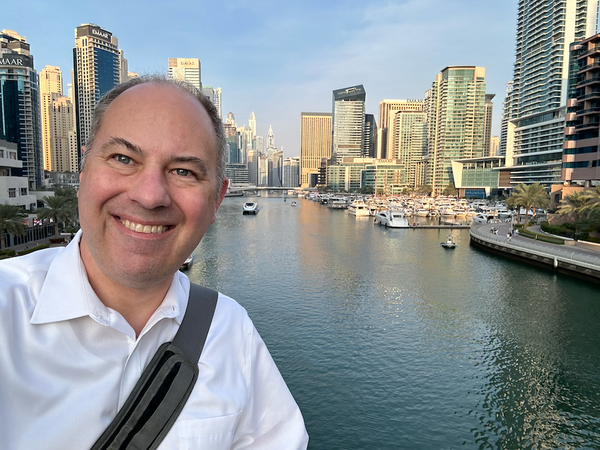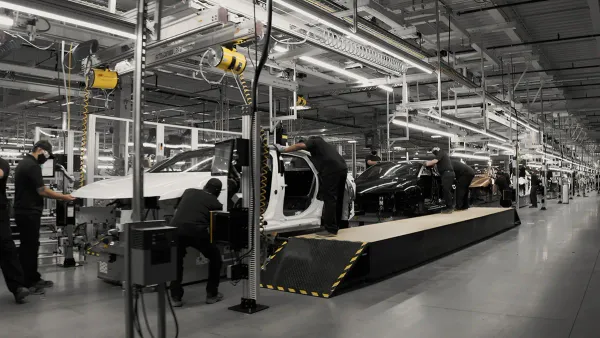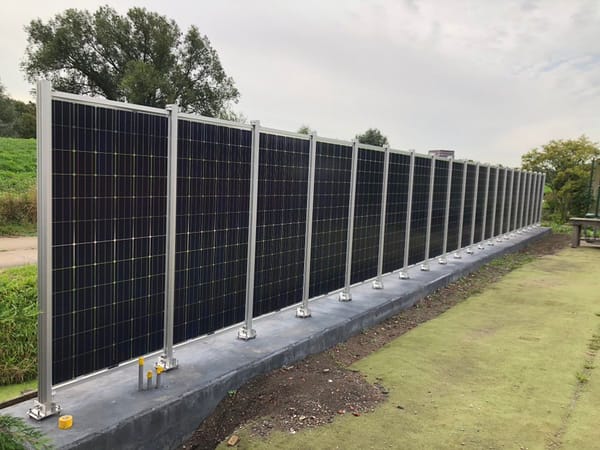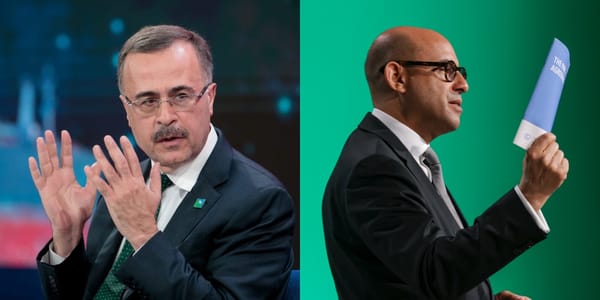Report from Dubai: Methane pledges and the American draw of Kamala Harris
Good evening from Dubai,
I spent a good chuck of COP28 Day 3 getting turned away from meeting rooms: “No press allowed!” I also spent about 45 minutes waiting to get into the conference center. With each day, the organizers add ever more baroque curves to the entrance queue, as they try to manage the crush of 100,000 people that arrive through the front door every day.
I’ve still got 12 more days here in Dubai, and I’m hoping that you, that’s right, you, the person reading this, will forward Heat Rising to three friends to encourage them to read it. Your personal network is what grows this newsletter. So please don’t be stingy. Spread the word.
-Mike

“I know that everyone is waiting to talk, but I’m not sure everyone is interested in listening. But I have to tick my box, so here it goes.” – Edi Rama, Prime Minister of Albania, starting his country’s awesome national statement.
What happened today
Today was the conclusion of 170 national leader statements, where every country nominally gets three minutes to announce big changes or call upon others for action. But in reality, most countries tend to take much longer, French President Emanuel Macron took 12 minutes, and most of the statements are self-serving lists of the great things they’re already doing.
U.S. Vice President Kamala Harris’ five-minute speech was no different than most, as she reeled off America’s massive new investment in domestic green technology, its recent $3 billion investment in the Green Climate Fund, and new moves to limit methane emissions. But the mere fact of her Americanness made Harris a political rock star among COP attendees.
Attendance in the Al Hayat Plenary was already limited to country representatives – reporters needed special accompaniment to be brought into the auditorium – it was a rarified audience. And yet…people from across the world stood up with their cell phones to record her speech – never mind that you could get a much better recording on the U.N.’s YouTube page (at the 1:35 mark). As Vice President Harris strode across the stage the room came alive. People scurried to get pictures of her. A pair of Asian male delegates stood up in the aisle to snap selfies with her in the background. Earlier I witnessed French President Emmanuel Macron and German Chancellor Olaf Scholz give their speeches, and neither one generated a scintilla of the Harris excitement.
It was a brief demonstration of the soft power America still manages to maintain, despite its laggardly behavior on climate.
Meanwhile, the day was peppered with a series of announcements on abatement of methane, a greenhouse gas with eight times the potency of carbon dioxide. U.S. EPA Administration Michael Regan came to Dubai to roll out the agency’s new methane standards for oil and gas platforms, which creates big new fines for methane leaks and empowers third parties to police platform leaks. Already, Turkmenistan, which has the world’s fourth-largest natural gas reserves, announced it was joining the Global Methane Pledge, a commitment to reduce 30% of methane emissions by 2030. And at the end of the day, 50 oil and gas companies announced plans to reduce their methane emissions and to be net zero (other than the fossil fuels they pull out of the ground) by 2050.
One big issue
The biggest negotiation fight on the docket is over a document responding to the results of the Global Stocktake. Because the world is on a path to warming more than 3°C, as a U.N.-sponsored study found this summer, negotiators are pressing to make a series of strong commitments that would put the world back on a path to 1.5°C.
But as much ambition as any group of countries might have, the important thing to remember about everything U.N. is that all decisions are consensual. Since climate negotiations have 198 participants, there’s a lot of veto opportunities. And yet, the vast majority of countries are on the same page about fixing climate. The resisting countries are essentially the U.S., China, India, Russia, and Gulf petrostates, led by Saudi Arabia.
Inevitably, COP meetings begin with tremendous optimism and the highest ambitions. For this year, the ambitions are primarily around financing a pair of developing country climate assistance funds, committing to tripling renewables, phasing out new coal plant construction, and a global phase out of all fossil fuels.
These ambitions get focused – and ground down – in a series of negotiating meetings, blandly named, “Global Stocktake – Informal Consultation”, where negotiating parties and observers all get to make comments about content, phrasing, and placement of commas. This makes the Stocktake negotiation meetings some of the hottest tickets in Dubai, held in the largest meeting rooms, and packed with hundreds of observer organizations, each hoping to say that one crucial comment that will influence negotiating countries on their positions.
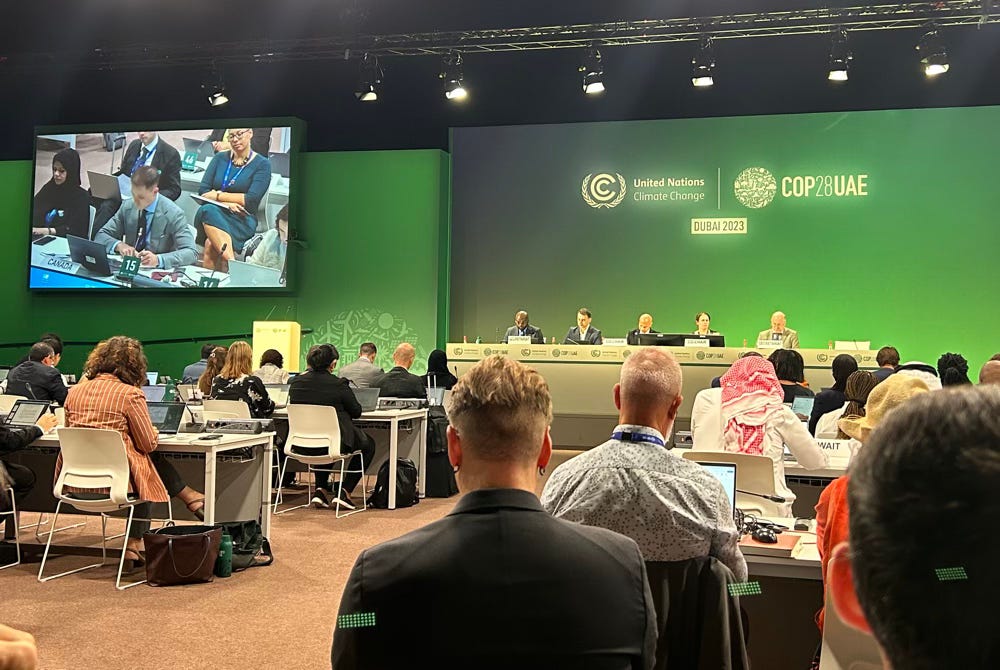
The meetings on the Global Stocktake statement began Friday with a draft 12-page document filled with placeholders, as negotiators still have to discuss large parts of the document. But still, what is already there – most of the document has been drafted by the Global Stocktake committee co-chairs – is a radical set of statements.
To begin with, the draft calls upon parties to support “accelerating efforts towards the phasedown of unabated coal power and phase-out of inefficient fossil fuel subsidies”, which for the United States would be a massive change, considering the number of oil and gas subsidies it provides. It also includes a placeholder only labeled, “phasedown/out fossil fuels, phasedown/out/ no new coal”. The statement also includes lengthy segments on climate financing, urging countries to a series of U.N.-created climate funds, including the Green Climate Fund and the Loss and Damage Fund, as well as commitments to direct trillions of dollars of private funds towards climate financing.
In the meetings, country after country lists their requests and requirements for changes to the document, sending the co-chairs back to work that evening to draft a new version that more closely reflects the countries’ requirements.
But still, everyone knows who lurks in the negotiation’s tall grass: It’s the Russians, Americans, Chinese, Indians, and Saudis. None of them are going to get on board with setting a fossil fuel phase out date, and probably not a phase out date for coal plants. The U.S. made an announcement today that it supports the phase out of unabated coal plants, but this is weak sauce, since the Biden Administration already put EPA rules underway that would require all operating coal plants to add CO2 scrubbers.
So, the negotiations meetings start bright and optimistic, while everyone wonders what they’ll be able to squeeze out of the big emitters. Will they allow a “phase down” with some super distant date? Will they allow an elimination of subsidies? Does that include tax incentives, as well as direct consumer price subsidies? Will they push for something about eliminating “unabated” fossil fuel emissions?
That last point seems like something possible, since the U.S. chief climate negotiator John Kerry recently tossed around “abated” and so did COP President and UAE national oil company head Sultan Al Jaber.
In the meantime, negotiators perform a kind of Kabuki theater, dancing around the result they know they’re headed for, pretending it isn’t actually pre-determined.
What I did today
I spent my day listening to national leaders giving speeches and trying to squeeze into negotiation meetings. There’s a hierarchy of meetings – high level meetings, “consultations” and “informal consultations” among them. As a member of the press, I can only get into the informal ones, although those pack plenty of punch. The high-level ones are reserved for ministers, regular delegates can’t speak, and press are certainly not allowed. That’s most of what goes on in the second week.
Last night I visited Ski Dubai, the indoor ski hill at Mall of the Emirates. It’s an incredible place, with real snow and a genuinely cold climate – it felt like I was back in Chicago. I shared a video of my trip yesterday with my paying readers. Click on the image below to view it.
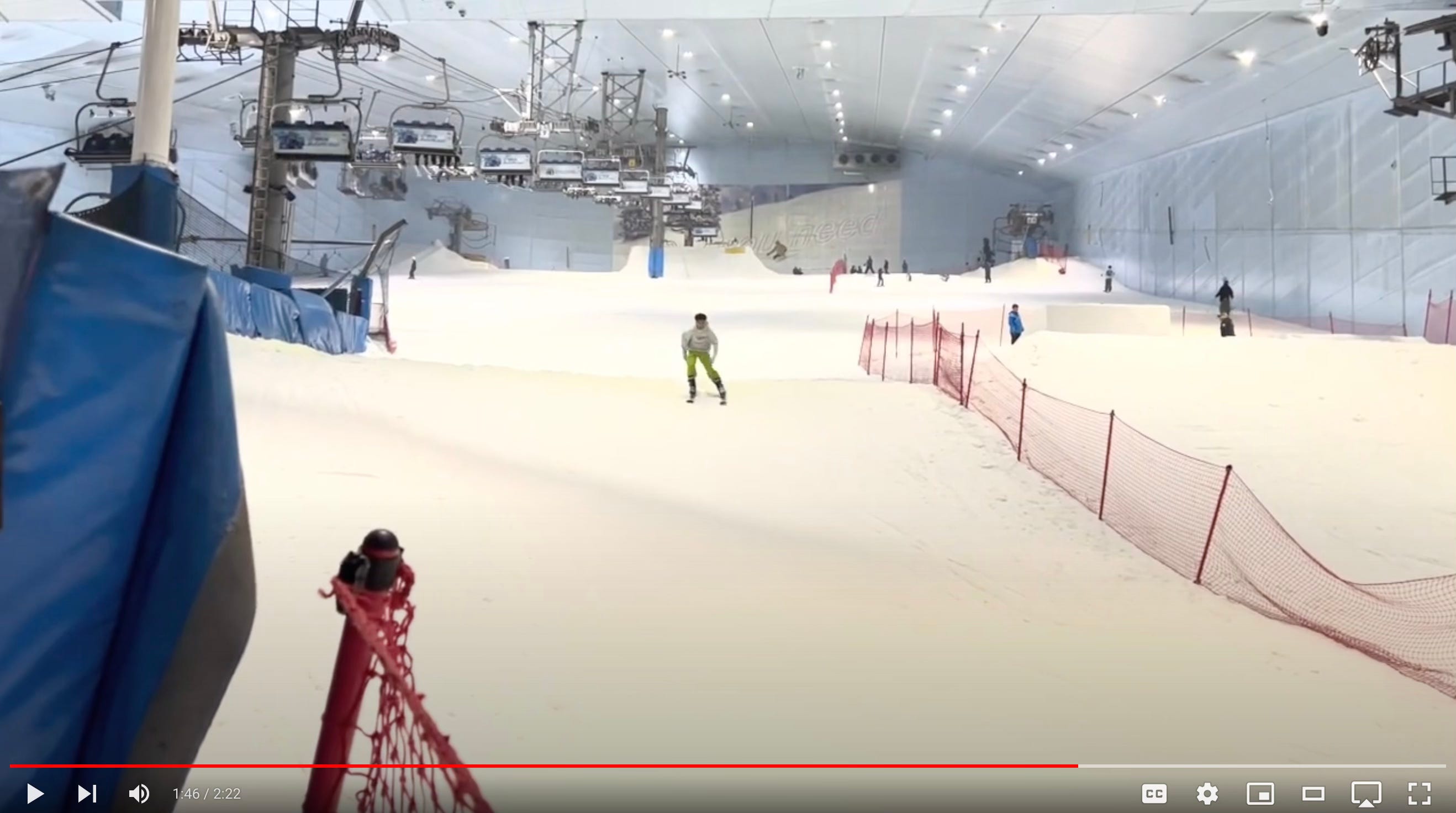
I get the contradiction of visiting an indoor ski hill while at a climate conference. I can’t imagine the energy footprint, but the fact is that for US$40, you can go hang out in freezing weather, on a ski hill, and drink coffee in a little chalet.
Here’s the really tricky part: It’s actually a ton of fun. In fact, if I lived here, I’d probably want to visit Ski Dubai a couple times a year.
And that, in a nutshell is the problem with fixing climate change – burning a ton of energy – which right now largely comes from fossil fuels – adds up to things that are a ton of fun. Fixing climate change is dour, time-to-eat-your-vegetables not fun.
See you tomorrow.


